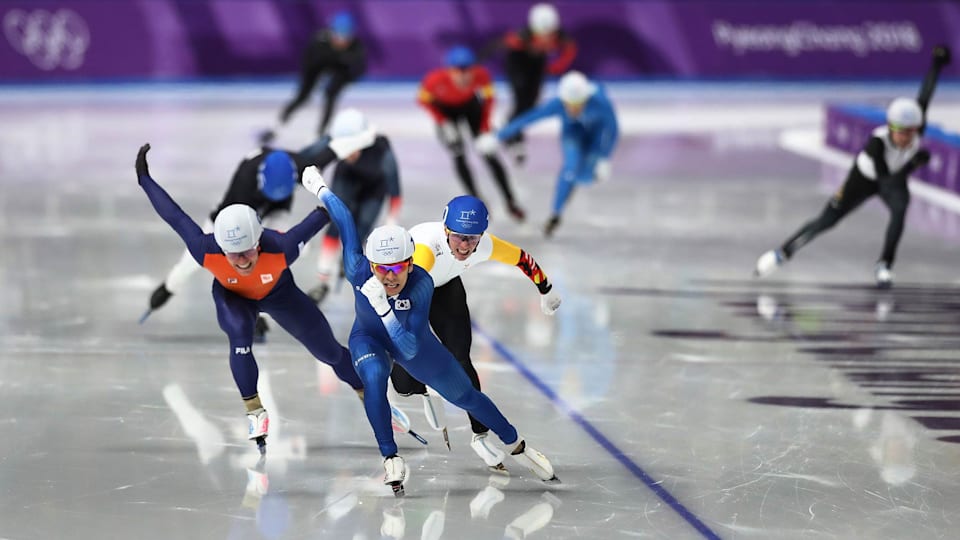
Bart Swings of Belgium took the silver, with an overall score of 40 points, while the Netherlands' Koen Verweij claimed the bronze with 20 points.
Lee, who won Olympic gold over 10,000m at Vancouver 2010, also boasts a men's record eight World Cup races in the mass start, including three of the last four going into PyeongChang 2018. And he did not disappoint his home fans, producing a race that was typically big on tactics, style and speed.
With two laps to go Sven Kramer (NED) – who was aiming to win a 10th gold medal that would have made him his country's most successful male Olympian – tried to make a break but was quickly overhauled by the chasing pack.
On the final lap, Lee, roared on by a vociferous crowd at the packed Gangneung Oval, timed his surge to perfection, moved into the front around the last bend to cross the line in first place.
Overwhelmed by emotion
“As an athlete, to win an Olympic gold medal is an incredible honour, even more so when it's the first competition and at home,” said Lee, who burst into tears during the medal ceremony. “It's been a long-time dream for me and unbelievable. It's such an honour for me.
"I was overwhelmed by emotions. It was such an amazing time. It's been a long dream and I've prepared for this for a long time.”
His latest Olympic triumph further confirmed his decision to switch from short track to speed skating back in 2009.
“Back then, looking back, it was luck for me to make the transition and that's why I made a good result in Vancouver 2010 (a gold and silver).
A relative veteran of the speed skating circuit at the age of 29, Lee, who converted from short track back in 2009, said the secret to his longevity was putting in the hours during training, something that he hoped would enable him to defend his crown in four years time.
“I put in the effort to train even more than my younger colleagues and I think that's why I'm here now. I will continue training to prepare for Beijing 2022, but I think I will have to put in more effort to prepare for that than anybody else.”
Trademark late finish
Traditionally a long-distance specialist, Lee has made the mass start event his own in the last two years, and he puts his success down to his ability to time his late surges into the finish. “In 5000 or 10,000 metres, I can do it because of the physical strength and that's a result of my training.
“In the mass start, in the last lap, I was able to overtake my competitors and when I do that I'm very excited. Sometimes, they're very fast so I have doubts in my mind. But when I do pass them, I'm very happy and I enjoy those moments.”
Meanwhile, silver medallist Swings, who was not among the favourites to make the podium ahead of the race, was delighted to finish second behind the world number one and become the first Belgian speed skater to make an Olympic podium since Nagano 1998.
“I knew he was the guy to beat, but I'm happy with a silver medal,” said the 27-year-old. “It's an amazing result for me and it's something I've worked a long time for.”
